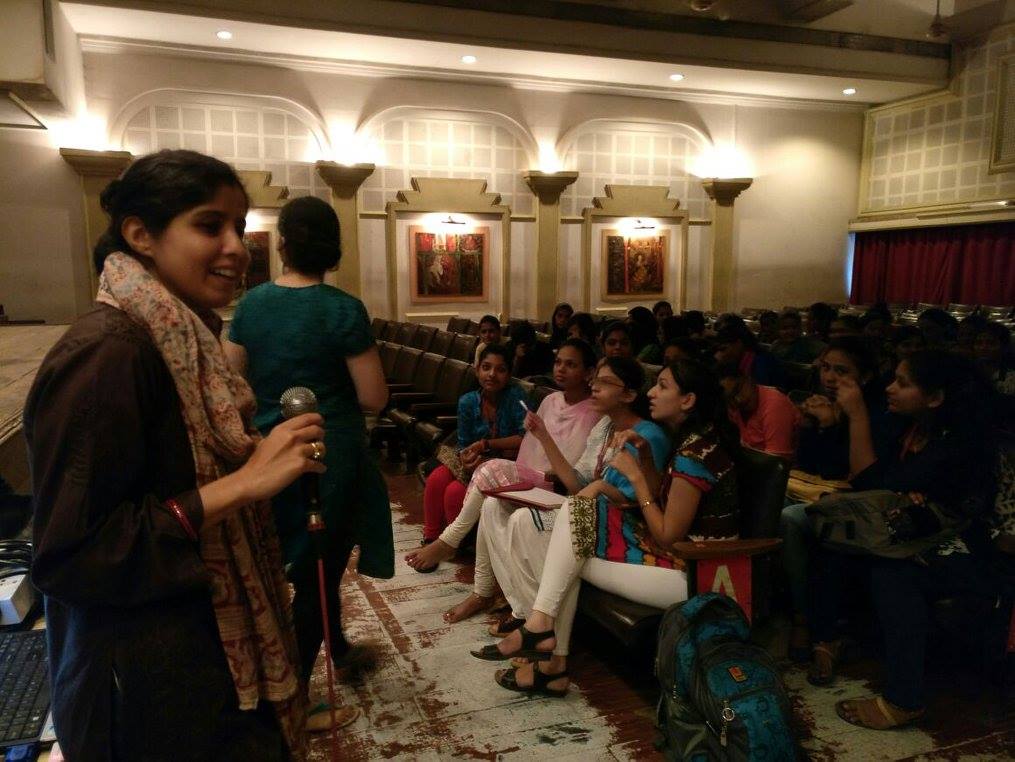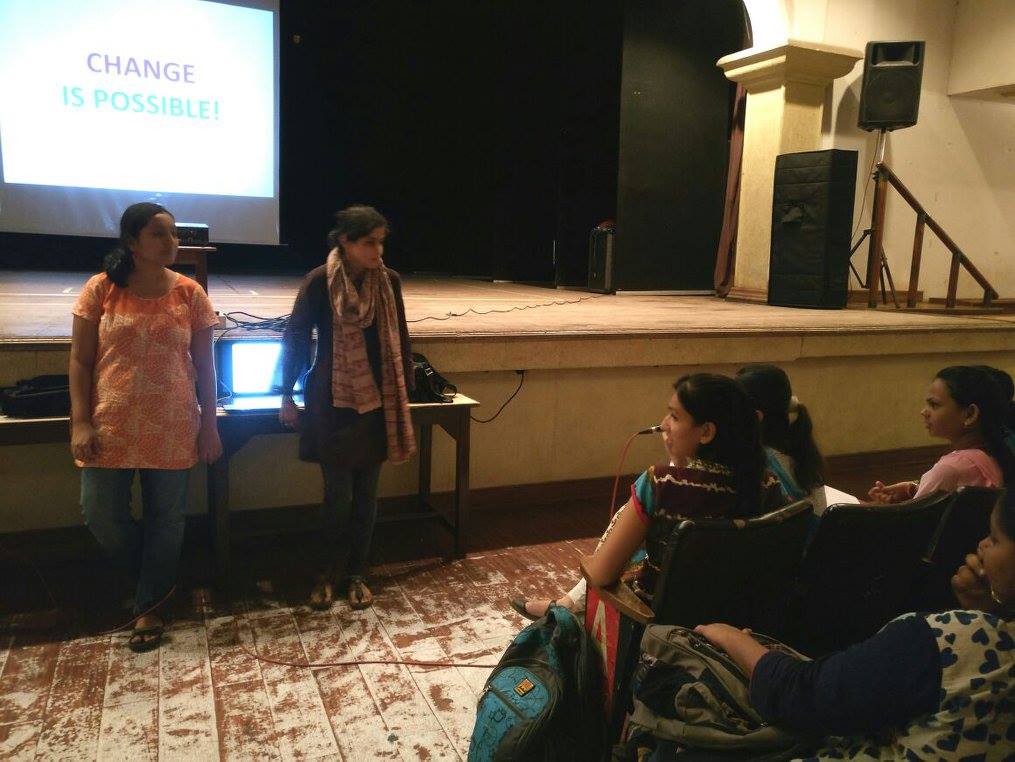by Aarefa Johari
On September 3, Sahiyo’s Mumbai team was invited to give a talk to college students enrolled in the Pehchaan programme run by Sahyog, a reputed non-profit organisation providing support to women and children from marginalised communities. Sahyog’s ‘Pehchaan’ initiative offers skills-training and mentorship programmes to students from low-income families at the PN Doshi College for Women. Every few weeks, as a part of Pehchaan, Sahyog invites guest speakers to conduct guest sessions about breakthroughs in their fields of work, and about issues related to identity, gender, women’s rights, character strengths and leadership.
At the event on September 3, my colleague Shaheeda Tavawalla-Kirtane and I conducted a two-hour session with around 100 first- and second-year Home Science students of PN Doshi College. The subject of Female Genital Cutting (FGC) was new to almost all the students, and they participated with great interest and enthusiasm in discussions on various aspects of the topic.
While talking about the female genital anatomy to explain what Bohras typically cut during circumcision, we realised that most of the girls had never heard of the clitoris, and were not taught about its existence in their Home Science anatomy classes. This led to a lively discussion on sexuality and female sexual pleasure.

We also spoke about the journey of Sahiyo, its founders and the phenomenal development of a vibrant movement working to end FGC in the community. We also discussed the obstacles we’ve faced and our efforts to overcome them, encouraging the students to similarly take up issues they feel strongly about in their own contexts and communities.
Most significantly, we talked about how the practice of FGC is a social norm much like many other norms prevalent in all our cultures. The students spontaneously related this to norms that repress women in their own worlds — and most prominent among them were menstrual taboos. The girls spoke about how many of them are not allowed to pray, visit religious sites or even enter the kitchen during their periods, and how superstitions about not touching pickle jars still abound. Among other norms, the students discussed the illogical belief in some of their homes about not cutting hair or nails on certain days, and how, even today, the women of some families don’t eat until the men have eaten first.
For us, it was overwhelming to see how, towards the end of the session, so many students expressed enthusiasm to create small movements against these norms in their own ways. We hope to be able to help them in any way we can!
Finally, we are immensely thankful to Beena Choksi and Megha Dharnidharka of Sahyog, for giving us an opportunity to engage with so many young, bright minds.

